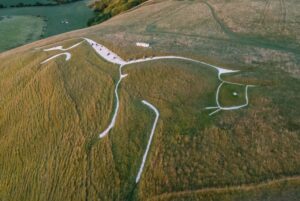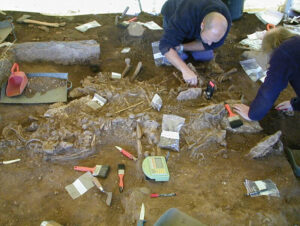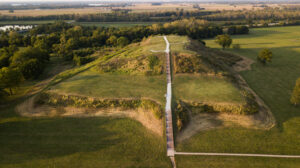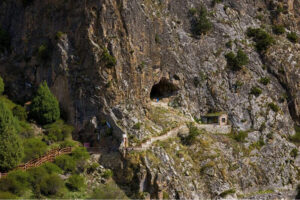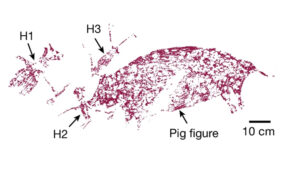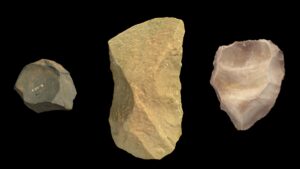Archaeologists have found a dozen severed hands at the Tell el-Dab’a site in northern Egypt. The hands lay in three pits outside the Hyksos Palace, a relic of the 15th dynasty of ancient Egypt (1650 to 1550 BC). The grisly find may be the first physical evidence of an ancient practice depicted in Egyptian texts and wall carvings.
Gold of honor
Documents and carvings show that the ancient Egyptians cut off the hands of those they defeated in battle. They then presented them to the Pharaoh in return for gold jewelry. They called the ritual “gold of honor.”
Severing the hands had two purposes. It proved how many foes one had killed in battle and it would stop their enemies from entering the afterlife. Egyptians believed the human body had to be complete for a soul to pass on.
Archaeologist Manfred Bietak led the excavations and instantly recalled the “gold of honor” practice when he spotted the hands.
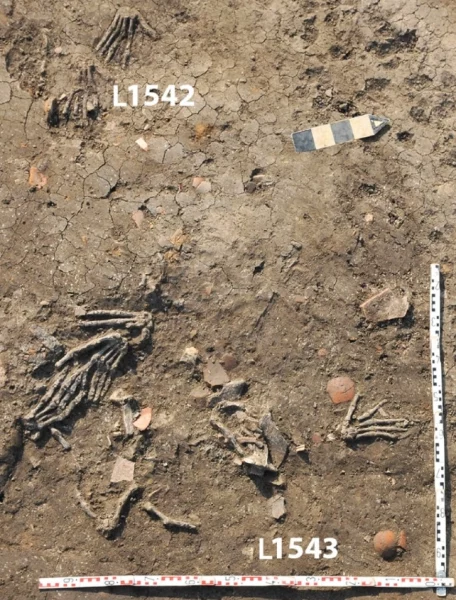
Twelve hands were buried in three pits. Photo: Nature/Gresky et al
Criminals or soldiers?
Other researchers thought that the severed hands could signify a punishment for thieves and criminals. But those who studied the hands disagree.
“They were all prepared properly to look just like a hand should,” archaeologist Julia Gresky explained. Someone had carefully cut off each hand, there was no bone below the wrist, and there were no markings on the bone. This suggests they removed the hands after the victim had died and rigor mortis had set in.
This level of care is unlikely if the hands were from criminals. The Egyptians used most prisoners as slaves, so cutting off their hands would be counter-productive.
The Egyptians had carefully laid out the hands in the pit, where they would have been visible from the pharaoh’s throne room.
The three pits contained one, three, and eight hands respectively. Alongside them, researchers found 18 individual fingers.

